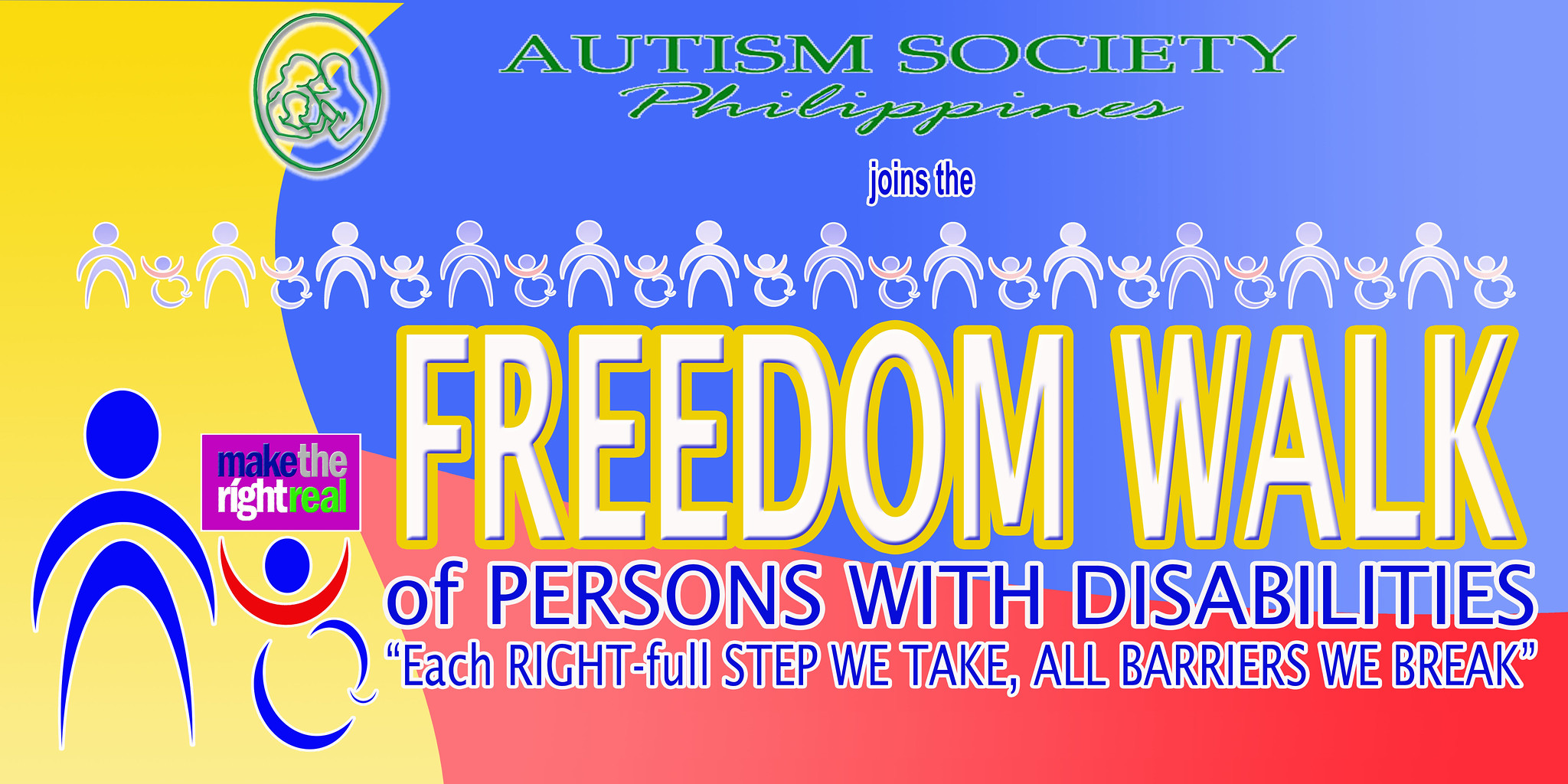 |
| Freedom Walk Poster |
What: Freedom Walk of person with disabilities
Where: Bonifacio Global City (BGC), Taguig City
When: 29 June 2013, Sunday. Registration starts at 5:30 am. Walk starts at 7:00 am sharp.
The Autism Society Philippines (ASP) has grown from the 11 mothers who bonded together for the causes of their children in 1989 to nearly 13,000 members, with 97 chapters all over the country.

The Autism Society Philippines (ASP) increases public awareness about challenges faced by Filipinos on the spectrum, advocating for appropriate services, and providing the latest information regarding intervention, education, and advocacy. It is comprised of persons with autism, families, teachers, and educators whose lives have been touched by autism.
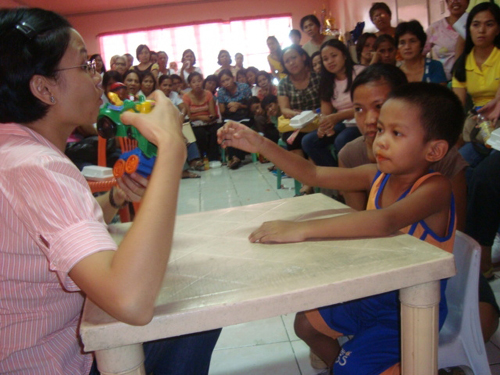
The Autism Society Philippines (ASP) reaches out to the many communities across the islands to organize and help make available services and support to persons with autism and their families, in close coordination with government agencies, local government units, and community builders. Our chapters remain to be driving force behind the organization's meteoric growth.
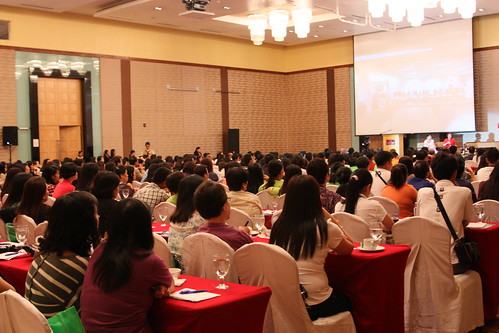
 |
| Freedom Walk Poster |
 |
| Pres. Aquino signed RA 10524 on 12 May 2013. |
 |
| via ASAN Ohio |
Autistic pride asserts that autistic people have a unique set of characteristics that provide them many rewards and challenges. Although autism is an expression of neurodiversity, some people promoting Autistic pride believe that some of the difficulties that they experience are as the result of societal issues. For instance, campaigns to gain funding for autism related organizations promote feelings of pity. Researchers and people with high-functioning autism have contributed to a shift in attitudes away from the notion that autism is a deviation from the norm that must be treated or cured, and towards the view that autism is a difference rather than a disability.The movement has gained support from many self-advocates all over the world. Themes from previous celebrations include "Acceptance, not cure," "Celebrate Neurodiversity," "Autistics Speak. It's time to listen," "Perspectives, not fear" and "Recognize, Respect, Include." The movement also pushes for the involvement and consultation of self-advocates in matters related to autism policy -- "Nothing about us, without us," as they say.
 Posted in: international
Posted in: international
 "Proloquo2Go is a communication tool most effective for children who are nonverbal or those who have minimal utterances; it captured the essence of Alternative Augmentative Communication. It is flexible for the interventionists to create personalized files specific to the child’s needs. It also facilitates improvements in in the child’s receptive and expressive vocabularies, lengthening of utterances, etcetera.
"Proloquo2Go is a communication tool most effective for children who are nonverbal or those who have minimal utterances; it captured the essence of Alternative Augmentative Communication. It is flexible for the interventionists to create personalized files specific to the child’s needs. It also facilitates improvements in in the child’s receptive and expressive vocabularies, lengthening of utterances, etcetera.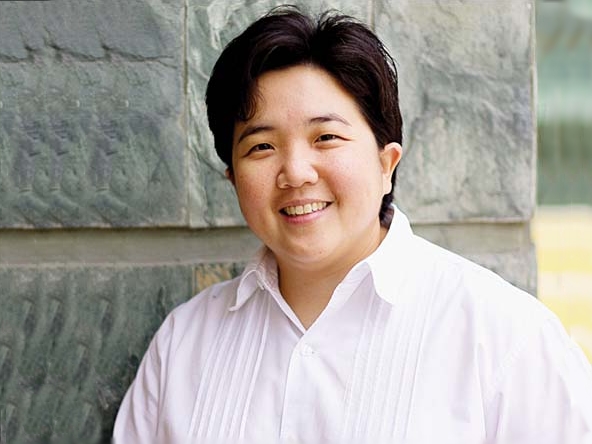 "The Bag Game is for all age groups and to be played with others. It encourages language processing skills including asking questions.
"The Bag Game is for all age groups and to be played with others. It encourages language processing skills including asking questions.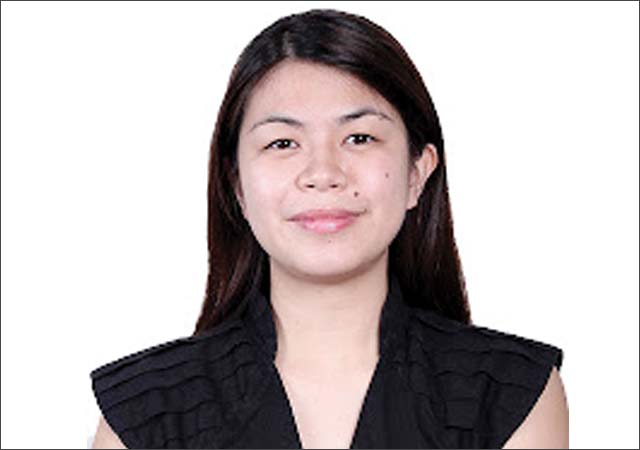 "Bookabi let my students create their own photo stories with a wide selection of characters, backgrounds and objects that they can place, resize and rotate with the swipe of a finger.
"Bookabi let my students create their own photo stories with a wide selection of characters, backgrounds and objects that they can place, resize and rotate with the swipe of a finger.
 |
| Ms. Joyla Ofrecia |
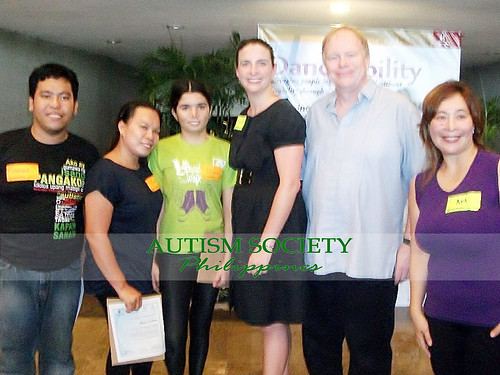 |
| PWAs Gerard and Thara with artistic director and teacher |
 |
| Ms. Joyla Ofrecia |
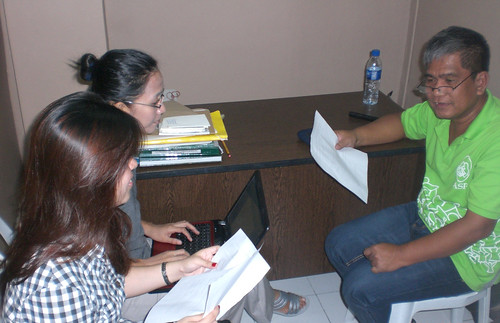 |
| Mr. Ranilo Sorongon meeting with ILLC teachers |
 |
| Stop Bullying Now Sign |
 |
| Dr. Teresita Yambot |
 |
| Agustin Estrella |
 Posted in: fsg
Posted in: fsg
 |
| Participants listening to Nick Vujicic's testimony |
 |
| From L-R: PWA Muneer Peña, ASP National President Ms. Janette Peña, Tacher Baldwin Kho, Thea and Mili Peña and National Treasurer Ms. Evelyn Go |
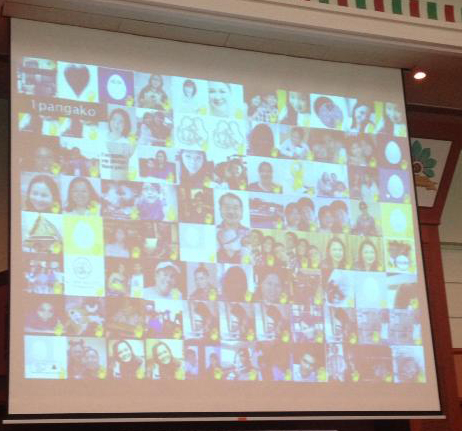 |
| ASEAN People seen in a slide show |
 Posted in: angels-talk
Posted in: angels-talk